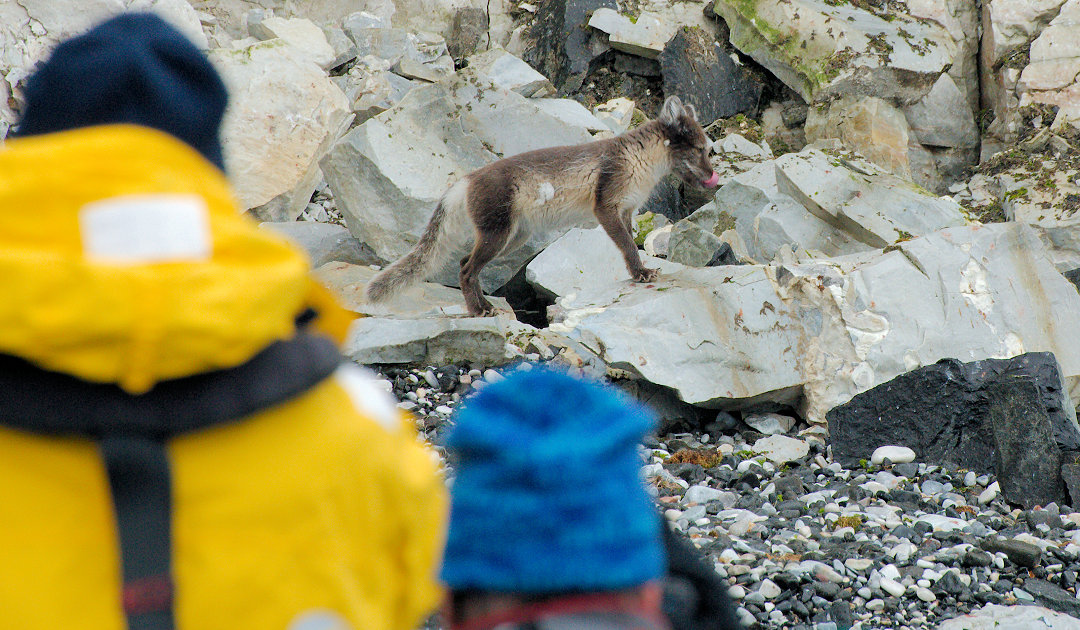
For many, a trip to the Arctic is an opportunity to experience a new environment first-hand, as well as to learn about the region, its diversity and how it influences southern climates. The cost of giving a young person this experience can be prohibitive, but expedition-cruise company Quark Expeditions has a special offer it hopes will allow more families to afford the experience of a lifetime
This summer, expedition-cruise operator Quark Expeditions is hoping to give children and young people between the ages of 8 and 17 the chance of a lifetime by offering free travel to the Arctic.
Quark’s offer applies to all of its voyages between 8 June and 20 September and is valid for one child or teen per accompanying adult. It includes transport from the starting point of the trip, such as Reykjavík, to the boarding point. It should also be noted that the offer is only valid for new bookings between 1 and 30 June, and applies only to standard and premium cabins. Single and triple cabins are not included in the offer, according to Quark Expeditions.

Offering children a chance to experience Arctic nature and culture was something Andrew White, Quark’s president, had been considering for some time. “I travelled to the polar regions with both of my children when they were 14 and 15 years old, and the profound impact on them was astounding,” he said. “Taking your children into the Arctic wilderness is one of the most educational and life-changing experiences you can provide them.”
One of the benefits of travelling to the Arctic is that it brings families closer together, according to Mr White. “Exploring the Arctic deepened their connection to nature and created family memories that we still talk about more than a decade later. As a parent, I look back at those Arctic moments as some of the most meaningful bonding experiences with my children.”

For Quark Expeditions, helping kids make the most of the trip involves making sure they are properly informed. A trip to the Arctic can easily overwhelm a young person, but Quark Expeditions has developed its offer with this in mind by providing comprehensive educational programmes suitable for people their age.
In addition to scientific topics, passengers learn about the culture and history of the people who live in the Arctic. This is particularly important on trips to Greenland or through the Northwest Passage, where guests have the opportunity to learn more about the way of life in the communities they visit. In these situations, the natural curiosity of children and their tendency to be more open-minded plays into the hands of the operator. Instead of learning about Inuit culture and traditions in a book or by using a screen, they experience it through direct contact.

Critics of polar tourism will see an offer of free travel as leading to more tourism in the Arctic and an attempt by Quark Expeditions to make money. But Mr White sees things differently. “The chance to sail down the historic Northwest Passage, visit Inuit communities to learn about their history and culture and spot polar bears in the remote Canadian Arctic are the kinds of family experiences that create memories of a lifetime.”
Ensuring the safety of young passengers in a wilderness like the Arctic is a key concern for Quark Expeditions. Experienced expedition teams trained to accompany groups of various ages in the Arctic wilderness keep guests safe, just as parents are responsible for supervising their children — although it’s almost certain that they will find themselves just as amazed by the diversity of the Arctic.
This article is published as part of a partnership between PolarJournal and Quark Expeditions.
Read more about the Kids Go Free in Arctic ’23 offer
More about this topic





